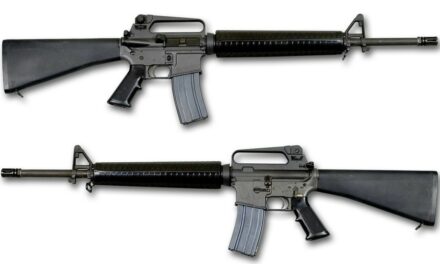We support our Publishers and Content Creators. You can view this story on their website by CLICKING HERE.
James Earl Carter, the 39th president of the United States, has died at the age of 100. He was widely praised for his ‘post-presidency.’ After his presidency ended in 1981, he used his ‘former’ status to engage in free-lance diplomacy and humanitarian work. Indeed, Carter helped create our contemporary sense of what ex-presidents are to do with the curious prestige which surrounds former occupants of the world’s most powerful elected office.
Most ex-presidents either fade into obscurity – like George Bush and his son – or they give speeches and book tours which can easily become quite lucrative. One of the few blemishes on Barack Obama’s otherwise excellent record on self-dealing is how much he has money he has raked in as an ex-president. Donald Trump, of course, excels at this. He shamelessly grifted his way through his post-presidency.
Carter mostly eschewed that, living modestly and supporting a range of philanthropic causes.
Reagan Would Not Have been Much Better
But it is Carter’s presidency – 1977-1981 – on which his reputation turns, and the consensus on both left and right is that he was pretty bad.
The charges against him are well-known by now. Domestically, his presidency is synonymous with inflation, slow growth, rising crime in cities, and high energy prices. Overseas, Carter is now an icon of American weakness in US diplomatic history. The country was humbled by Watergate and defeat in Vietnam, and in 1979, Iran took American diplomatic staff at the US embassy in Tehran hostage, and the Soviet Union invaded Afghanistan. A moderate oil shock followed.
All of this is correct, and the effects of these various crises were exacerbated by Carter’s infamous micro-management style and moralism. Carter did not bend easily, either with Congress or foreign leaders.
But it is also fair to point out that any other president would likely have flailed in the face of these multiple overlapping challenges. Carter had terrible luck.
Were Ronald Reagan elected in 1976 – Reagan challenged sitting President Gerald Ford in the Republican primary in 1976 – it is unlikely that events would have unfolded much differently. A Reagan presidency would not have deterred the Islamic revolutionaries of Iran from attacking the US embassy – fundamentalists scarcely care about such details. Nor would it have stopped the Soviet invasion of Afghanistan because Reagan could not have credibly threatened war against the USSR over such low stakes.
Indeed, when Reagan did become president in 1981, he did not end the dangerous foreign policy behavior of the Shiite Iranian Republic or the USSR.
Reagan defenders assert that he was ‘tougher,’ but this was mostly more belligerent talk. Reagan’s support for the Afghan rebels – the pipeline of foreign weapons into Afghanistan to fight the Red Army – is likely something Carter would have supported as it grew in the 1980s; Carter had already encouraged Pakistan to contest the Soviets in Afghanistan while he was still president. Similarly, Reagan’s ‘second cold war’ with the Soviets actually had its start with the Carter administration. It was Carter who approved the M/X missile and boycotted the 1980 Olympics. And on Iran, Reagan was no less flummoxed than Carter.
Jimmy Carter: A Genuine Middle East Peace Deal
Jimmy Carter faced foreign policy challenges, which likely would have overwhelmed any president – including Reagan, who did not manage similar challenges in a better way. Further, Carter did have a stand-out moment rarely achieved by any of his predecessors: a breakthrough peace deal that dramatically reshaped an enduring conflict. In 1978, Carter brokered a permanent peace between Israel and Egypt, who had been fighting on-off since Israel’s birth in 1948. That peace holds today. This was a remarkable achievement.
Few other modern presidents have used the powers of the office successfully like this. Bill Clinton nearly reached a deal between the Israelis and Palestinians but ultimately failed. Obama reached a deal with Ira, but his successor overturned it. Reagan and the Bushes oversaw nothing this groundbreaking (the USSR’s collapse was not a deal, but a defeat), and Trump famously flamed out in his effort to broker a deal with North Korea in 2018-19.
If the US pursues a more moderate foreign policy – in which it does not simply collide in conflict with competitors like China, but negotiates with them – it will need more dealmakers like Jimmy Carter.
This is a lesson from an actual diplomatic deal-maker for self-described deal-maker Trump as he re-enters the presidency.
About the Author: Dr. Robert E. Kelly
Dr. Robert E. Kelly (@Robert_E_Kelly; RoberEdwinKelly.com) is a professor in the Department of Political Science at Pusan National University and a 19FortyFive Contributing Editor.

 Conservative
Conservative  Search
Search Trending
Trending Current News
Current News 





